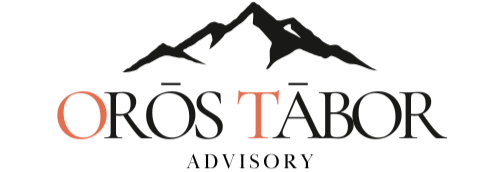
Veteran's Toolkit & Resources
We encourage you to explore these resources. They are powerful and essential. Our service at Orōs Tābor is to help you interpret this vast amount of information, cut through the bureaucratic noise, and build a personalized strategy that transforms these resources from a confusing list into a clear, actionable plan.
Our Philosophy: A Guide for the Climb
The journey from military to civilian life is a monumental ascent. Like any challenging expedition, success depends not only on your own strength and resilience but also on the quality of your map, the reliability of your tools, and the wisdom of your guide. At Orōs Tābor Advisory, our primary role is to serve as your dedicated guide. However, we also believe in empowering you with the best possible toolkit for the journey ahead.
This page is not a simple list of links. It is a curated, expert-vetted library of the most critical resources available to the veteran community. We have organized this toolkit to mirror the key phases of a successful transition: rebuilding your community, mastering the official systems, forging your new career, and securing your financial future. These are the official portals, the historic support networks, and the innovative programs that form the landscape of the modern veteran support ecosystem.
Rebuilding Your Community: The Power of a Shared Identity
The most profound and often unexpected challenge of transition is the loss of community. In the military, you were part of a cohesive unit with a shared language, a common purpose, and an unbreakable bond. This sense of belonging is a fundamental human need, and its sudden absence can be the most difficult part of returning to civilian life. While your family provides the essential foundation of support, rebuilding a broader community with a shared understanding of your experience is critical for long-term well-being and professional success.
For over a century, Veteran Service Organizations (VSOs) have been the bedrock of this community. They were not created by the government, but by veterans themselves who saw a need and filled it. The most historic of these is the Veterans of Foreign Wars (VFW), founded in 1899 by veterans of the Spanish-American War. They returned not to parades and comprehensive benefits, but to a society that did not understand their sacrifice. They faced unemployment and a lack of medical care for their service-connected injuries. In response, they did what they were trained to do: they organized, formed a new unit, and advocated for one another. This act of creating a community from shared hardship is the legacy that all VSOs carry forward.
Today, these organizations are more vital than ever. A local VFW or American Legion post is not just a hall; it is a networking hub, a center for mentorship, and a place where you do not have to translate your past. It is where you can connect with veterans who have successfully navigated their own transitions and now work in every industry imaginable. For those navigating the complexities of a VA disability claim, the Disabled American Veterans (DAV) offers an invaluable service, providing highly trained, accredited service officers who can assist with your claim free of charge. Modern organizations like the Iraq and Afghanistan Veterans of America (IAVA) provide a voice and a community specifically for the post-9/11 generation. Engaging with these groups is the single most powerful step you can take to rebuild your network, find new mentors, and anchor yourself in a community that understands.
Veterans of Foreign Wars (VFW): Find a local post, learn about their advocacy, and connect with a historic community of veterans.
The American Legion: Discover local posts, community programs, and national advocacy efforts.
Disabled American Veterans (DAV): Access free, professional assistance with your VA disability claims and connect with a network of support.
Iraq and Afghanistan Veterans of America (IAVA): Join a modern, non-partisan VSO that advocates for and supports post-9/11 veterans.


